- News
- Reviews
- Bikes
- Accessories
- Accessories - misc
- Computer mounts
- Bags
- Bar ends
- Bike bags & cases
- Bottle cages
- Bottles
- Cameras
- Car racks
- Child seats
- Computers
- Glasses
- GPS units
- Helmets
- Lights - front
- Lights - rear
- Lights - sets
- Locks
- Mirrors
- Mudguards
- Racks
- Pumps & CO2 inflators
- Puncture kits
- Reflectives
- Smart watches
- Stands and racks
- Trailers
- Clothing
- Components
- Bar tape & grips
- Bottom brackets
- Brake & gear cables
- Brake & STI levers
- Brake pads & spares
- Brakes
- Cassettes & freewheels
- Chains
- Chainsets & chainrings
- Derailleurs - front
- Derailleurs - rear
- Forks
- Gear levers & shifters
- Groupsets
- Handlebars & extensions
- Headsets
- Hubs
- Inner tubes
- Pedals
- Quick releases & skewers
- Saddles
- Seatposts
- Stems
- Wheels
- Tyres
- Health, fitness and nutrition
- Tools and workshop
- Miscellaneous
- Cross country mountain bikes
- Tubeless valves
- Buyers Guides
- Features
- Forum
- Recommends
- Podcast
TECH NEWS
First Ride: Vitus Zenium VR Disc
The Vitus Zenium VR Disc is a comfortable and highly controllable aluminium road bike that comes with a Shimano 105 groupset and TRP Spyre mechanical disc brakes for just £899.99. That’s a stunning price.
Vitus flew me out to Spain last week to check out the 2016 road range. We’ve already published First Rides on the Vitesse Evo race bike and the Venon Disc.
As with those other bikes, I got about 3 1/2hrs on board the Zenium VR Disc. It was mostly rolling terrain with a couple of big hills thrown in, including the Coll de Rates.
You could easily forget that this is a sub-£1,000 bike because it handles like a more expensive setup. Okay, you have to pay a weight penalty compared to more costly rivals, but the overall ride is very good and the quality of the components is exceptional for the money.
Like the straight Zenium Disc (£899.99 RRP, £809.99 from Chain Reaction Cycles), the Zenium VR Disc has a 6061-T6 triple butted alloy frame, while the two lighter SL models in the range – the Zenium SL Pro Disc (£1,499.99 RRP, £1,349.99 from Chain Reaction Cycles) and the Zenium SL Disc (£1,299.99 RRP, £1,169.99 from Chain Reaction Cycles) have frames made from 6066.
The frame we have here is a good looking design with a tapered head tube, a down tube that flattens out to span virtually the whole width of the bottom bracket shell, and fairly smooth welds. You can see them if you look but they’re hardly conspicuous.
As with the other Vitus road bikes, the Zenium’s top tube slopes downwards to leave a lot of the slender 27.2mm seatpost extending out of the frame. Don’t underestimate the difference this can make to a bike’s comfort. The same goes for the slim seatstays.
Vitus describes the Zenium as having an ‘endurance’ geometry; in other words, your ride position isn’t as low and stretched as it is on a traditional race bike. On the other hand, you don’t get a sit-up-and-beg position either. It’s somewhere between those two extremes.
I had the 58cm Zenium VR Disc that’s built with a 578mm stack height (the vertical distance between the centre of the bottom bracket and the top of the head tube) and a reach (the horizontal distance between those two points) of 403mm (click here for more details on the geometry).
For comparison, a £1,200 Specialized Roubaix SL4 in a 58cm size has a considerably shorter reach – 392mm – and a significantly higher stack – 622mm. The head tube is 225mm compared to the Zenium’s 175mm. You’ll get a much more upright position on the Roubaix.
I got myself into a position I liked on the Zenium with a single 10mm headset spacer underneath the stem. I felt pretty efficient with my hands down on the drops of the aluminium compact handlebar. If you wanted a slightly more aggressive setup, you could obviously take out all the spacers; it just depends what you’re after.
A T700 carbon-fibre fork slots in at the front, with a 100mm x 15mm thru axle design to hold the wheel in place against the braking forces… speaking of which, the Zenium VR Disc is fitted with TRP Spyres front and rear. That rear one is positioned on the outside of the seatstay rather than on the chainstay, which doesn't look quite as tidy to me, and it operates on a 140mm rotor whereas you get a 160mm rotor up front.
We rate the Spyres as the best mechanical (cable operated, as opposed to hydraulic) disc brakes out there, and Vitus uses them on all of its Zenium and Venon models. It’s a dual piston design with both pads moving an equal amount against the rotor. You don’t get as much power as with a hydraulic setup but it’s more impressive than any rim brake design we’ve ever used and it’s easy to stay the right side of skidding.
The descent from Coll de Rates is a real helter skelter of twists and turns and I really enjoyed it on the Zenium. This is a bike that feels well balanced and stable on the straights yet doesn’t have any trouble shimmying through the tight stuff. Personally, I don’t think disc brakes are a massive advantage in dry conditions, and that’s what we had, although they’d have been a whole lot more valuable in the wet.
The rest of the groupset components are Shimano 105. These are very welcome on a £1,500 bike never mind one at this price.
Read our Shimano 105 review here.
Hitting the scales at 9.3kg, the 58cm Zenium VR Disc isn’t the lightest bike I’ve ever ridden by any stretch of the imagination, but it’s a very reasonable weight for the price. It wasn’t as easy to coax up the hills as the Vitesse Evo, but you wouldn’t expect it to be. It’s nimble enough, the 50/34-tooth compact chainset a good choice for a bike of this kind.
The Fulcrum Racing Sport wheels complement the rest of the package. They don’t flex noticeably when you chuck the bike through the corners and they spin up to speed well enough. The Continental Grand Sport Race tyres provided all the grip I asked of them although, as I said, conditions were dry and not all that challenging. They’re 25mm wide and the Zenium has clearance for 28s if you want to take things up a notch.
My initial impression is that the Zenium VR Disc is an exceptionally good bike for the money. It’s sporty, reasonably light and agile, and the spec is way better than you’ve a right to expect. At £900, there’s very little to fault here.
Mat has been in cycling media since 1996, on titles including BikeRadar, Total Bike, Total Mountain Bike, What Mountain Bike and Mountain Biking UK, and he has been editor of 220 Triathlon and Cycling Plus. Mat has been road.cc technical editor for over a decade, testing bikes, fettling the latest kit, and trying out the most up-to-the-minute clothing. He has won his category in Ironman UK 70.3 and finished on the podium in both marathons he has run. Mat is a Cambridge graduate who did a post-grad in magazine journalism, and he is a winner of the Cycling Media Award for Specialist Online Writer. Now over 50, he's riding road and gravel bikes most days for fun and fitness rather than training for competitions.
Latest Comments
- David9694 4 min 25 sec ago
Anger over Cornwall Council decision to offload 19 busy car parks...
- Doctor Fegg 12 min 32 sec ago
*cough* cycle.travel *cough*
- wtjs 19 min 34 sec ago
I have had my first advisory letter for a close pass in Gloucestershire (always NFA up till then)...
- mctrials23 28 min 8 sec ago
Cycling will never be safe. If you can get an advantage pushing it a little more than everyone else then people will do it. They can punish people...
- Rendel Harris 29 min 12 sec ago
3 watts/kilo is really good for someone aged 50 (sorry, not wishing your life away, I know you're not quite there yet) so if you can get up to 250...
- Rendel Harris 1 hour 40 min ago
As he says, sexual abuse as a child can rear its appalling head at any time in your life and drive you into a tailspin of depression, poor...
- SimoninSpalding 1 hour 59 min ago
I have a Ragley Trig, which is steel, has masses of clearance plus everything needed for racks, mudguards. I have it set up with a 2x10 Campag...
- wtjs 3 hours 6 min ago
Excellent, just the job! Thanks
- Rendel Harris 4 hours 27 min ago
Good point, it's England and Wales. Northern Ireland seem to have the same minimum and maximum penalties but I don't know if they work with the...
- chrisonabike 5 hours 11 min ago
Are you confusing a clearly opinionated - nay, biased rag like road.cc with a balanced, respectable news organisation like the BBC?














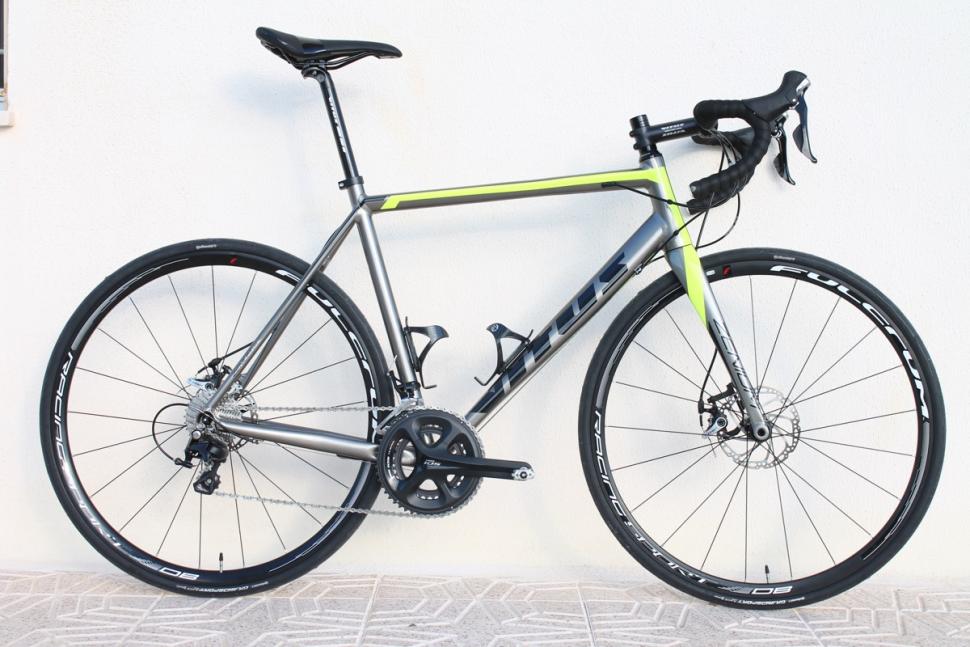

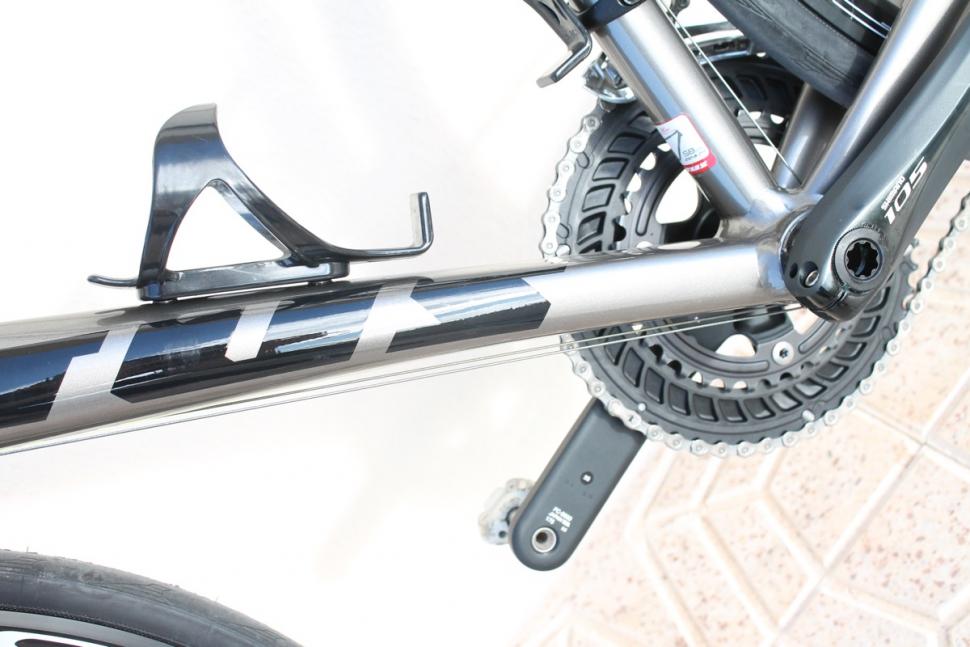

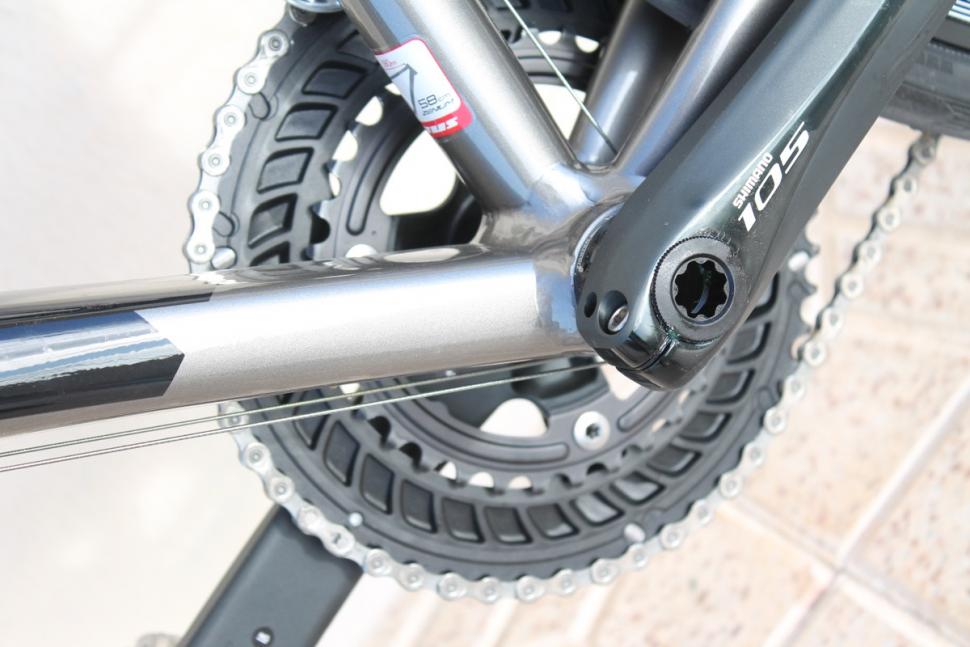
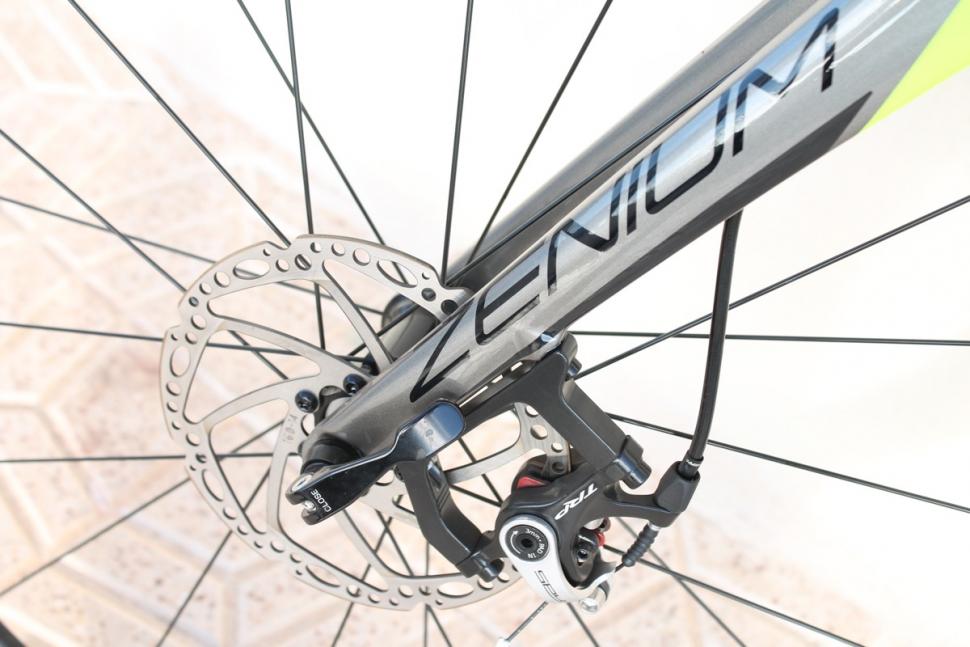
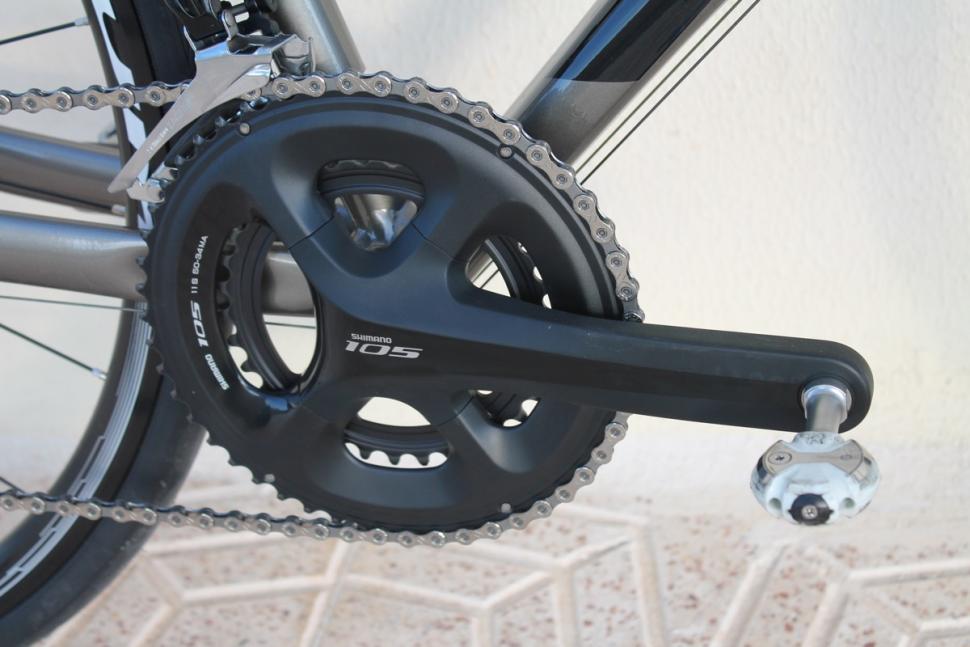

Add new comment
4 comments
Indeed. I don't really get, on a disc endurance bike, the omission. Don't need them? Don't use them. But very little cost added
Brilliant, perfect (for the price), except... oh no, no mudguard or rack mounts. I don't understand - surely these are one of the cheapest and simplest delighters you can add, and yet you don't. Why?! Even if it added £25 onto the price, it would still be a brilliant price and package compared to the other Sub-£1000 all rounders, like the Whyte Dorset, Cannondale Synapse etc. Kit I can upgrade, no holes for mudguards etc I can't. Oh well.
I'd love to see both mud guard and rack mounts on more bikes like this. Not just for commuting but general day to day riding too.
See, I'd buy this tomorrow, if it had mudguard mounts.